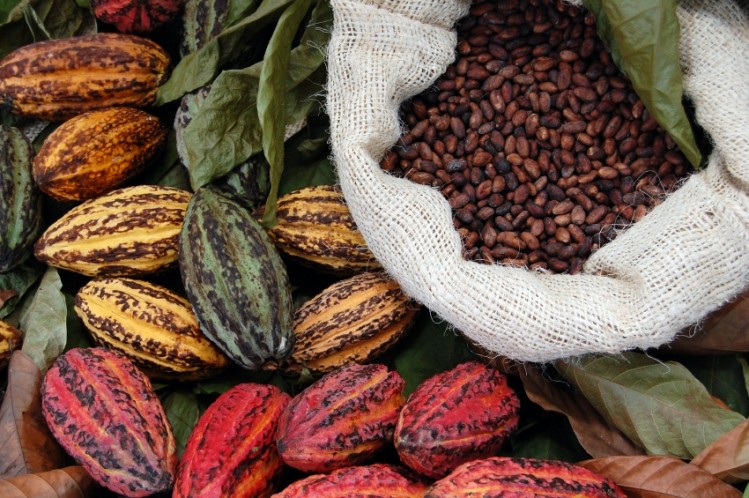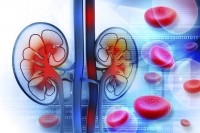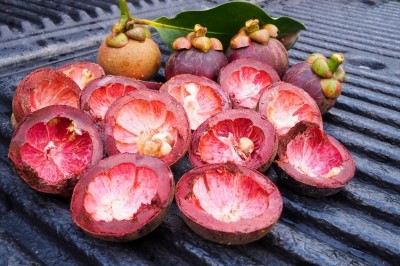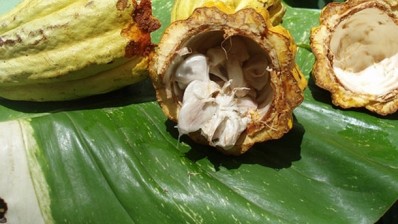Cocoa flavanols improve blood vessel function in kidney disease patients: Study

Thirty days of consuming 900 mg of cocoa flavanols per study day was associated with a 53% improvement in flow-mediated dilation (FMD), compared with a 3.3% improvement in the placebo group, according to findings published in the Clinical Journal of the American Society of Nephrology (CJASN).
The study enrolled patients that were on chronic haemodialysis (HD) undergoing thrice-weekly dialysis treatments. The average age of the participants was 65 years.
“Impressively, the degree of reversion of vessel dysfunction was comparable to the effects observed through administering statins or making dietary and lifestyle changes,” wrote Dr Tienush Rassaf, lead researcher at the University Hospital Essen in Germany.
“Whether this approach also leads to a reduction in mortality is not clear and has to be investigated.”
Flavanols of the month
Within the flavanols subclass, compounds like procyanides, catechin and epicatechin are considered as food constituents with proven beneficial effects on the endothelium as confirmed by the European Food Safety Authority (EFSA) - approved health claim.
Within the claim application, the EFSA panel was asked to examine a study suggesting cocoa flavanols consumed for 12 weeks could increase fasting ED-FMD significantly in the target population.
In another study the effect was dose-dependent and occurred after one week of consumption.
This effect was supported by two additional studies and was also observed in an additional two out of three studies in patients under pharmacological treatment for coronary artery disease. The mechanisms by which regular consumption of cocoa flavanol induced a sustained effect on fasting ED-FMD were unknown.
At the time EFSA ruled: “Cocoa flavanols help maintain endothelium-dependent vasodilation, which contributes to normal blood flow”.
A daily dose of 200 mg was needed to obtain the claimed effect.
“This amount could be provided by 2.5 g of high-flavanol cocoa powder or 10 g of high-flavanol dark chocolate, both of which can be consumed in the context of a balanced diet. The target population is the general population,” EFSA wrote in the opinion.
Study details
This latest study was a randomised, double-blind, placebo-controlled trial in which 57 participants were enrolled. They ingested cocoa flavanol (CF)-rich beverages (900 mg CF per study day) and were compared to a CF-free placebo.
The CF-containing test materials were low-calorie fruit-flavoured beverages standardised for their CF content. The CF and placebo drinks were also closely matched for equal content of macronutrients, micronutrients, caloric load, theobromine and caffeine.
The results indicated an acute CF ingestion led to an improved conduit artery function with enhanced FMD and a maximum response at two hours after CF intake as compared to placebo corresponding to a flavanol-induced FMD increase of 53%.
Importantly, CF ingestion was well tolerated with no differences found in plasma potassium or pH levels and no effect on blood pressure or heart rate. The acute improvement in vascular function following ingestion of the CF beverage was associated with an increase in plasma flavanol metabolites.
“The burden of cardiovascular disease in dialysis patients is so devastating that a promising intervention like cocoa flavanols deserves full attention by the nephrology community,” said Dr Carmine Zoccali and Dr Francesca Mallamaci, in an accompanying editorial. “If the findings are confirmed in additional studies, they may represent a turning point in patient care."
Kidney failure burden

“Kidney failure leads to endothelial and thus to vascular dysfunction,” Dr Rassaf told NutraIngredients.
"The reasons are not clear; however, dialysis-dependent and independent factors may be involved. We recently discovered that haemodialysis leads to an increase of free haemoglobin, which scavenges nitric oxide (NO) and thus impairs vascular function.
“I believe there might be a realistic chance that cocoa flavanols be realistically used as a treatment one day to those with kidney failure,” he said.
“However, further studies with hard endpoints and higher numbers of patients are necessary. We have to learn what the best subgroup of flavanols exerts the best cardio protective effects? What is the dosage needed? When/how many times per day should flavanols be applied?
“Flavanols should realistically be seen as an additional therapeutic approach, not as the only one.”
Source: Clinical Journal of the American Society of Nephrology
Published online ahead of print: doi:10.2215/CJN.12141115
“Vasculoprotective effects of dietary cocoa flavanols in hemodialysis patients: a double-blind, randomized, placebo-controlled trial”
Authors: T. Rassaf, C. Rammos, U.-B. Hendgen-Cotta, C. Heiss, W. Kleophas, F. Dellanna, J. Floege, G. R. Hetzel, M. Kelm








